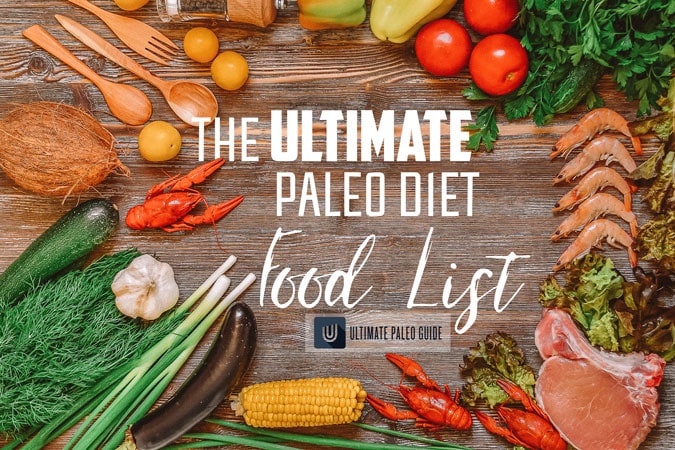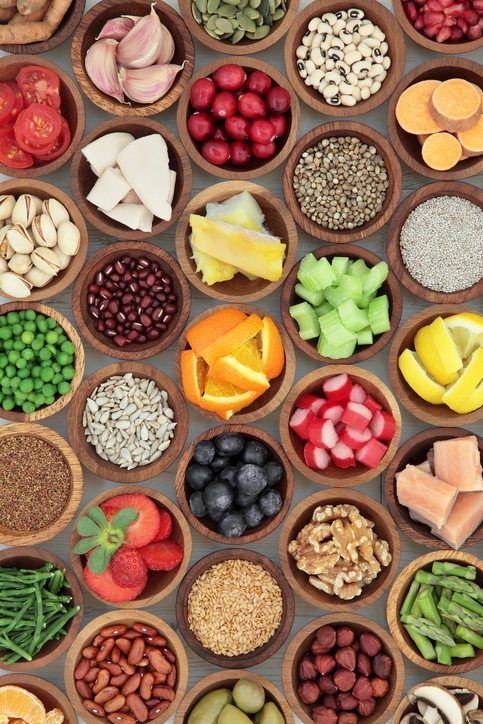
According to research, exercising can help reduce or prevent many chronic diseases. People who exercise moderately are less likely to get certain types of cancer. Moreover, people who exercise regularly have lower risks of developing diabetes and cardiovascular disease, which are linked to obesity. These conditions are more common in people who exercise regularly, and this can be prevented.
There are many benefits to exercising. It has been shown that exercise can improve memory and concentration, decrease the risk of depression, increase the immunity system, and lower cholesterol and blood pressure. Furthermore, physical activity increases the number of WBCs, which means that it is an excellent anti-inflammation agent. This could help with a variety of ailments. And because of the many other benefits of exercise, the evidence is growing for its use as a treatment for chronic diseases.

The benefits of exercise are transdiagnostic, which means that they may differ according to the symptom you experience. Exercise can improve your sleep quality and mood as well as relieve stress and anxiety. Exercise is also a great way reduce your risk of stroke, diabetes, heart disease and other illnesses. In addition to preventing these diseases, exercise is a valuable way to maintain a healthy weight and overall health.
According to the Mayo Clinic, there are 29 million Americans living with diabetes. Most of these people are unaware of their condition and have never been diagnosed. One study that looked at heart attack patients found a 20-25% reduction in mortality when compared with those who did not participate. Others showed even greater reductions. The results of large reviews of past studies showed that exercise rehabilitation helped people with heart attacks live longer.
Regular exercise is good for your health. It can improve the quality of life and reduce the risk of many diseases, including type 2 diabetes, cardiovascular disease, and several types of cancer. Exercise can lower your risk of developing other health issues, such as anxiety, dementia, and depression. These are only a few benefits of exercising. It is vital to exercise and stay active to avoid chronic diseases. Exercise offers many other benefits.

Regular physical activity has been shown to reduce the risk of many chronic diseases. It can also lower the likelihood of high blood pressure and other complications. It can also enhance your overall health. Research on heart disease has shown that stroke prevention can be achieved by increasing your physical activity. You can reduce your risk of developing heart disease by increasing your activity. Exercise can help you lose weight if you are overweight.
FAQ
What is a good exercise routine?
Regular exercise is key for staying in shape. It doesn't make a difference what kind of activity you choose. As long as you do it often, it will be beneficial. Consistency and consistency are the keys to success. For you to get results, you have to stick with it for a longer period of time.
Begin by starting to do a little bit of physical activity each day (like walking). Increase the time you spend exercising each day until you can do 30 minutes. You can choose to run, swim, weight train, do yoga or take aerobics classes.
Try to make sure you exercise on all days of the week. You should not miss any sessions unless there is a good reason.
Make sure to wear appropriate clothing and footwear for outdoor exercise. Also, consider weather conditions and how they might affect your ability or safety while exercising.
While exercising, make sure to drink plenty water. Drinking alcohol during exercise can cause dehydration. Avoid caffeine-rich drinks like coffee, tea, and coca. They may give you energy, but they will also dehydrate you.
At first, it's normal to feel tired after you finish your exercise routine. However, if you continue with your program, you'll soon feel more energetic and refreshed.
What is the best way lose weight?
It is not easy to lose weight. Many people quit because they don’t know where to start.
There are simple steps you can take in order to lose those extra pounds.
First, you must ensure you eat fewer calories than you burn. You can gain weight by eating more calories than your body burns.
The second is to get regular exercise in order burn those calories. You can choose from different types of exercises, including jogging, walking, cycling, dancing, etc.
Third, stop smoking and drinking alcohol. These habits lead to a higher intake of calories than usual.
Fourth, reduce your intake of fatty and processed foods. They can be replaced by healthier options, such as fruits and vegetables, lean meats or whole grains, legumes, seeds, beans, and nuts.
Fifth, you should change your lifestyle to adopt new habits. It is possible to wake up at 5 AM to go to work, or to be more active before you get to work.
Sixth: You must be disciplined, and you must follow your diet plan.
Finally, you have the option to join a gym and take part in an aerobics session to burn off those extra calories.
By following these simple tips, you will soon begin to notice results.
What does butter do to men?
Butter is one of many good sources of saturated fats. This fat is good for hair and skin health, as well as stronger bones.
Vitamin K is also found in butter, which helps prevent bleeding from cuts or bruises. Vitamin K and vitamin B work together to prevent any bruising.
Butter is also rich with minerals, such as calcium and phosphorous. These elements are good for teeth and bones.
Butter is not without its flaws. Butter contains high levels of cholesterol. A few studies have shown that too much cholesterol can increase the risk of developing coronary disease.
Butter is also high in saturated fat which can lead to obesity and higher cholesterol.
You can spread butter on bread if you are forced to use it. Bread absorbs more oil that pasta and potatoes.
Can I drink alcohol while exercising?
Yes. Alcohol can increase energy expenditure, speed up healing time, and reduce soreness.
Also, alcohol increases insulin sensitivity which makes it easier to absorb glucose.
However, alcohol can lead to dehydration that can slow down your metabolism. Alcohol can also lower testosterone production, which could lead to a decrease in muscle-building potential.
For these reasons, women shouldn't drink alcoholic beverages before working out. Women who are heavily alcoholic should wait at minimum 24 hours before starting to work out.
Breastfeeding women should stay away from alcohol.
Men should drink only one glass of alcohol per day.
Is it true?
Protein helps maintain healthy bone and tissue. However, too much protein can result in calcium excretion through the urine. This can cause kidney stones.
It's important to note that not everyone gets kidney stones after eating more than 2 grams of protein per kilogram (2.2 pounds) of body weight. You don't have to eat a lot of protein to get kidney stones.
By being careful with your sodium intake, you can prevent kidney stones. Sodium is important for maintaining the body's water balance. Too much sodium can lead to kidney stones.
You may also want to reduce your protein intake in the event of kidney stones. Protein provides about half of the daily caloric needs for most adults. Reduce your intake of protein and you will likely lose weight.
If you do decide to eat more protein, don't go overboard. Do not eat more than 20% of your daily calories from protein.
How many calories per day should I consume?
This can vary from person to person. On average, you need 2000 to 2500 calories per days. You need to determine how many calories you need based on age, gender, height, weight, activity level, and lifestyle.
Statistics
- According to the American Academy of Dermatology (AAD), men over 50 are at a heightened risk of developing it. (healthline.com)
- An estimated calorie range for moderately active adult males falls between 2,200 to 2,800 calories per day, depending on age. (eatright.org)
- Candidates and applicants must pass all four tests at 70% (minimum level) to graduate from Basic Deputy U.S. Marshal (BDUSM) Training. (usmarshals.gov)
- 10 pounds in a month is likely during a lean bulking phase, especially for beginners. (muscleandstrength.com)
- Get free shipping and 25% off today. (healthline.com)
External Links
How To
What nutrients does a man require daily?
Daily nutrition is essential for men's healthy growth. Your body needs vitamins, minerals and nutrients as well as carbohydrates, proteins, fats, carbohydrate, fiber, and other essential components.
You also need specific nutrients for different times in the day. To give you an example, the body uses energy it receives from food to make hormones and antibodies. Protein is needed to build muscles and repair tissue damaged when you wake up.
Your body will burn fat at night and store the extra energy as a form of glycogen. Your body has less energy but still requires enough nutrients during this time. You may have an occasional snack during the evening hours if you feel hungry.
Working out requires adequate carbohydrate and protein intake. You may feel sore muscles if you exercise hard.
To avoid this, you need to eat carbs and proteins within two hours of training. Your body will use stored glycogen to produce glucose for energy.
After your workouts, you should eat protein immediately. This prevents muscle tissue from being broken down while you are sleeping.
Your body produces lactic acid during high levels of physical activity. The body produces lactic acid when there is too much activity. This can cause fatigue. You can avoid this by eating carbohydrates-rich foods like fruits and veggies.
Carbohydrates are a good source of energy to help you recover from hard exercise.
In addition, you may want to include lean meats, fish, eggs, milk, cheese, yogurt, beans, nuts, and seeds into your diet.
All of these foods contain high quality protein. Protein helps to repair and grow muscles. Protein provides the amino acid your body needs for testosterone and sexhormone production.
Good skin, hair, and joint health requires adequate dietary fats. Healthy men need to consume between 20%-35% of their total calories from fat.
Fat is good for your heart and helps you fight cancer. It also keeps your brain functioning properly.
You can get the majority of the fats that you need from vegetable oils such as soybean oil.
These oils contain high levels of monounsaturated fat acids (MUFAs). MUFAs help lower cholesterol and reduce inflammation. They protect cells against damage from free radicals.
Saturated Fats (SFAs), which are mostly found in animal products like meat, butter, and dairy products, include LDL ("bad") cholesterol. SFAs can raise LDL ("bad") cholesterol levels and increase triglycerides. They can also increase weight and reduce belly fat.
Polyunsaturated fats (PUFAs) are found in plant-based sources like vegetable oils, nuts, seeds, and grains. PUFAs improve cardiovascular function and decrease inflammation. They also help control blood sugar and cholesterol.
Low HDL ("good") cholesterol can lead to erectile problems in men. Saturated fats are a major source of bad cholesterol. This lowers good cholesterol.
Men who eat large quantities of red meats or pork may develop prostate problems. Nitrites convert to nitrosamines when cooked at high temperatures. These compounds can cause lung cancer.
Many processed meats are high in nitrites, and other dangerous chemicals. You should avoid them.
The American Heart Association recommends limiting red meat intake to two meals per week. Choose poultry, fish and legumes instead.